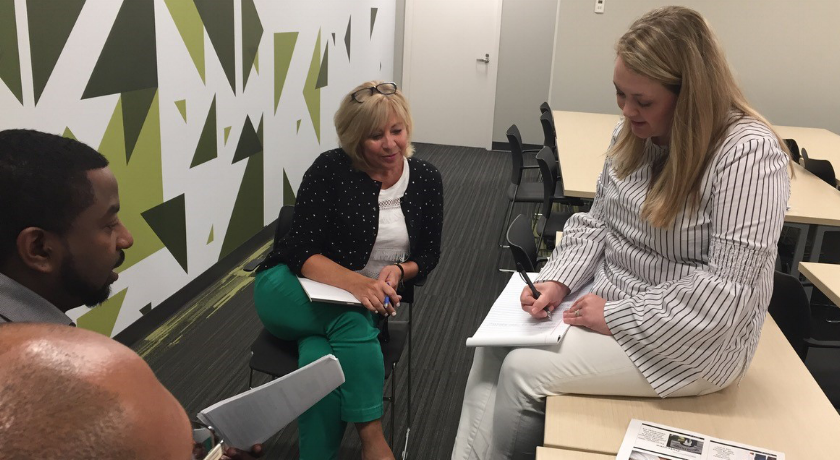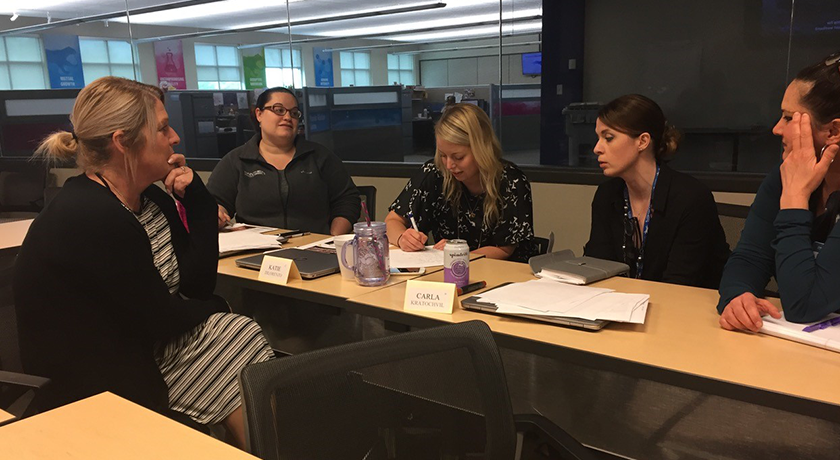D.I.S.C.: The Secret to Hiring Your A-Team
When it comes to recruitment, what traits should you be looking for in a candidate? Find out how you can use D.I.S.C. to hire the best people for your organization with tips from our experts.
Putting together a team that will be both effective in their roles and a good fit for your company can be a difficult task. How do you know which personalities and work ethics will collaborate well and produce the best results?
As a hiring manager, it can be tempting to look for individuals who embody the same traits and work style as you. After all, it makes sense that someone who values similar things as you would fit in well with your team.
But our experts caution against this recruitment tactic.
Instead, Lyndon Friesen, Outback Team Building & Training’s Lead Skill Development Facilitator, suggests that you should be looking for individuals who will complement you and your existing colleagues.
Find out how the behavioral analysis tool D.I.S.C. can be your hiring team’s secret weapon.
How to Recruit Your A-Team Using D.I.S.C.
Below, Lyndon weighs in on how D.I.S.C. can help you find the best people for your organization by filling in the gaps on your team. You’ll also find sample interview questions and step-by-step advice on how to use D.I.S.C. for recruitment.
Advice from a Pro Employee Training Facilitator
Lyndon works with corporate groups of all kinds, and often integrates D.I.S.C. assessments into sessions that deal with team dynamics, collaboration, or conflict.
Here’s how he recommends using D.I.S.C. when it comes to assembling the strongest team possible for your company:

“I think it’s important, if you think of recruitment, if one of the teams you had were filled with a bunch of people that were strong in one of the quadrants but missing in another, it would be, ‘We need to identify somebody that might actually complement us, versus be the same as us.’ So, as it relates to the team, you want to have representation in all four quadrants. From recruitment to performance management of an individual, to how we deal with conflict, to how we build effective team dynamics…understanding ourselves and understanding our teammates is critical.”
– Lyndon Friesen, Lead Skill Development Facilitator at Outback Team Building & Training
10 Sample D.I.S.C. Interview Questions
While asking applicants to complete an entire D.I.S.C. assessment is the best way to learn more about their personalities and behaviors, you can also include a few D.I.S.C.-relation questions in the interview.
Here are 10 examples that you can work into your conversations with a potential candidate:
- What are your priorities when involved in a team project?
- What motivates you the most when working on a task?
- How would you describe your communication style?
- What would your perfect workday look like?
- How do you deal with tight deadlines?
- What do people tell you they value the most about your work?
- Can you describe how you deal with confrontation?
- How would you describe your leadership style?
- What do you value most when working with others?
- When do you feel the most engaged in a role?
3 Steps to Using D.I.S.C. in Your Interviews
Here’s a breakdown of how you can use Lyndon’s advice in an effective way to recruit an all-star team:
- Get current employees to take the D.I.S.C. test either as a group or on their own time, and keep a record of everyone’s results
- Ask potential candidates to take the assessment during or after their in-person interview, or include D.I.S.C.-related questions throughout the process
- Move forward with individuals whose results complement your team and fall within the D.I.S.C. quadrants that you currently lack
Learn More About D.I.S.C. in the Workplace
You can also download A Practical Guide to Using D.I.S.C. in the Workplace for more tips from Lyndon Friesen, including step-by-step advice on introducing D.I.S.C. within your organization. Simply click the button below for access to your free copy of this all-in-one PDF document.




Comments